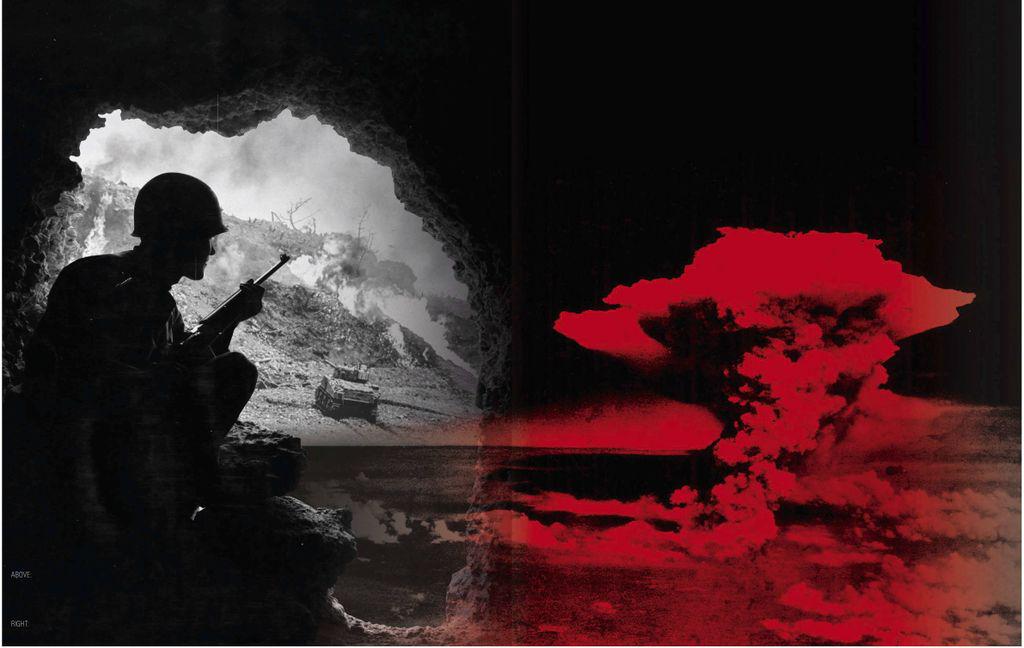THE BLOODBATH AND THE BOMB

Pacific War, an 83-day slog that cost 250,000 lives. Saul David describes a battle so terrible that it persuaded President Truman to reject an invasion of Japan and turn instead to the atomic bomb
“Smoke and dust rose up from the shore, thousands of feet high,” wrote the Pulitzer Prize-winning war correspondent Ernie Pyle, watching from the 5th Marines’ command ship, “until finally the land was completely veiled. Bombs and strafing machine guns and roaring engines mingled with the crash of naval bombardment and seemed to drown out all existence. The ghastly concussion set up vibrations in the air – a sort of flutter – which pained and pounded the ears as though with invisible drumsticks. During all this time the waves of assault craft were forming up behind us.”
It was 7:45am on 1 April 1945 – or ‘Love Day’, the invasion of the 70 mile-long island of Okinawa, the most southerly of Japan’s 47 prefectures. Pyle’s ship was just one of 1,300 Allied vessels, containing 183,000 combat troops, that were taking part in the greatest air-land-sea battle in history, the last major clash of the Second World War, and one that would have profound consequences for the modern world.
The decision to attack Okinawa – Operation ‘Iceberg’ – had been taken by American military chiefs the previous October. Possession of Okinawa, just 400 miles south of the Japanese home islands, would allow Allied planes to bomb strategic targets on the mainland and prepare the ground for an amphibious invasion. It was the culmination of a two-pronged American advance – through New
You’re reading a preview, subscribe to read more.
Start your free 30 days